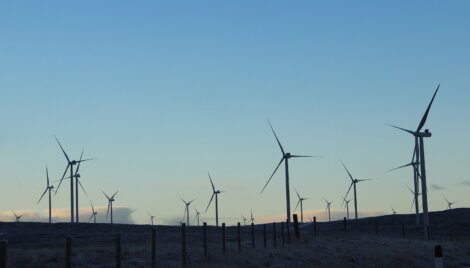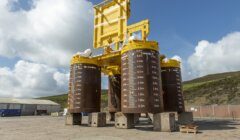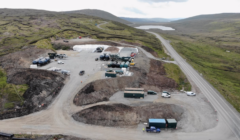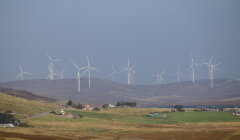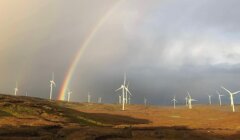Energy / Fair energy – a bubble about to burst or an opportunity to take ownership?
A REPORT by Scottish community organisations calling on the government to ensure that local people benefit from the roll-out of renewable energy projects has been welcomed by some.
However, others say the environmental sacrifices made as a result of large renewable energy projects are rarely fully considered and are met by increased resistance from local communities.
The call for a Fair Energy Deal for Scottish Communities has been made by Community Energy Scotland, the Development Trusts Association Scotland, Scottish Communities Finance, Community Land Scotland and the Scottish Community Alliance.
The groups claim communities could benefit to the tune of £170 million a year but progress in the community energy sector has slowed and “is now even at risk of significant decline”.
And while large corporate developers are busy taking advantage of Scotland’s vast natural resources, people in the islands endure high levels of fuel poverty with some of the highest electricity prices anywhere.
The report calls for a wholly owned community energy target of one gigawatts (GW) of installed capacity by 2030, shared ownership opportunities, a review of current community benefit principles and the creation of a community wealth fund “to support the delivery of a just transition to net zero for all communities across Scotland’.
One of the authors of the report, Community Energy Scotland’s policy manager Kristopher Leask, said the organisations behind the publication are engaging with MSPs and other stakeholders to lobby for communities getting a fair deal from the energy transition.
He said they were calling on the Scottish Government and energy companies to use a proportion of community benefits not just from onshore renewables but also from offshore wind farms and transmission developments to create a community wealth fund so that all communities in Scotland could benefit from the move towards net zero.
Become a member of Shetland News
Leask added that it was crucial for the transition process that communities were not just getting a fair deal, but also given the opportunity “to develop their own assets” and given access to “credible shared ownership”.
Green SIC councillor Alex Armitage meanwhile said the energy sector is heavily skewed in favour of large corporations and against the interests of communities.
“The transition to renewables is also our opportunity to transform the energy economy, to rebalance the system in favour of ordinary people,” he said.
“This report outlines the ambition and the direction of travel required of our politicians in order to get the best deal for our communities.
“This call to action comes at a very helpful time, as our Shetland community considers our own local energy strategy.”
However, Sustainable Shetland, the grassroots group that has been opposing the Viking Energy wind farm project for the last 15 years, said wealth creation should not be the only consideration in the roll-out of renewable energy projects.
The group’s chairperson Frank Hay said the report was “quite limited in what it covers” and went on to say that environmental impacts of renewable energy projects on local communities were not mentioned.
“It is interesting to note that the community benefit model in place for Viking Energy [£5,000 per installed megawatt per year, index linked] is described as being ‘not good practice’,” he said.
“We would certainly agree with that. Is it too much to ask that community benefit should be targeted more towards those who are most affected by developments?
“This document seems to envisage more and more renewable energy developments in spite of certain areas of Scotland, including Shetland, being subjected to more than their fair share.
“Combined with increasing demands for infrastructure, the drive for more and more renewables is meeting increased resistance from local communities nationally and targets are likely to be more difficult to achieve. The feasibility of some of the targets in this document are very doubtful.
“Beware of the renewable energy bubble bursting, this week’s government announcement that new gas fired power stations are to be built may be a sign that the limitations of renewable energy are beginning to be realised.”
However, councillor Armitage took a different stance and said it was high time to take ownership of the opportunities.
“We are presented with a huge political opportunity – do we stand up to profiteers and claim an ownership stake in the value of our natural resources,” he asked.
“Or do we take a passive approach and risk bequeathing an austere future for our children?”















